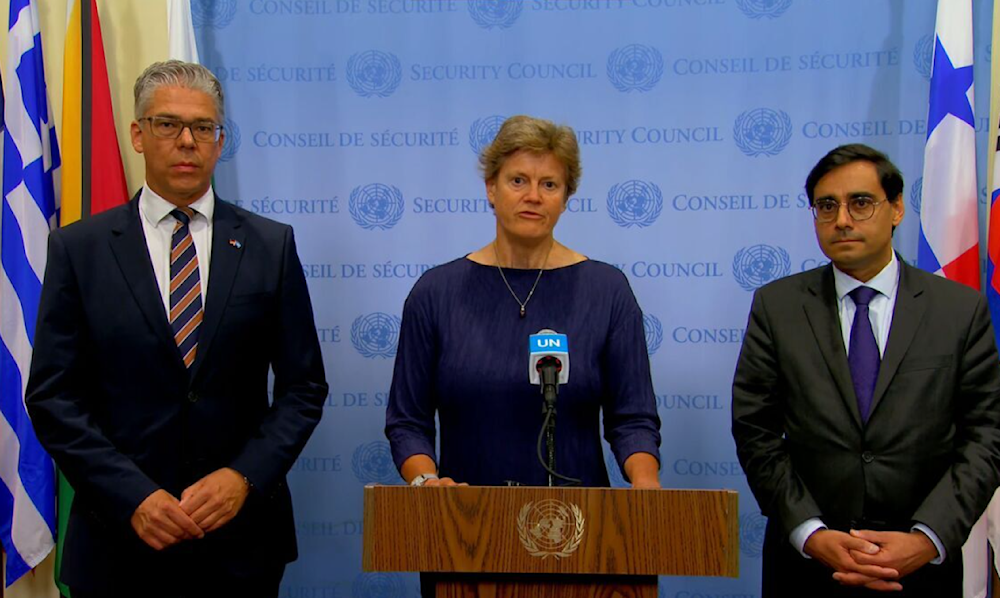European Troika sets conditions to delay UN sanctions on Iran
European Troika links postponing UN sanctions on Iran to strict conditions, as Tehran rejects the offer and Russia-China push for a six-month extension.

Britain, France, and Germany announced on Friday that the postponement of UN sanctions on Iran would be contingent on Tehran meeting three key conditions. In a joint statement released ahead of a closed-door UN Security Council meeting, the three countries, known as the European Troika, said they were prepared to delay sanctions for up to six months if Iran agreed to:
- Re-allow UN nuclear inspectors access to its nuclear program
- Address concerns over its stockpile of enriched uranium
- Engage in talks with the United States
Britain’s UN ambassador, Barbara Woodward, described the demands as “fair and realistic,” but stressed that “so far Iran has shown no indication that it is serious about meeting them.” She called on Tehran to reconsider its position and reach an agreement that could pave the way for a long-term diplomatic solution.
Iran’s ambassador to the United Nations, Amir Saeed Iravani, dismissed the proposal, calling it “full of unrealistic preconditions.” He argued that such demands should emerge from negotiations rather than serve as a starting point, adding that “they know that these demands cannot be met.”
Iravani stressed that what is currently needed is a “short and unconditional technical extension of Resolution 2231,” which underpinned the 2015 nuclear agreement that lifted UN and Western sanctions in exchange for restrictions on Iran’s nuclear program.
Russia and China propose alternative draft
In parallel, Russia and China submitted a draft resolution to the UN Security Council, calling for a six-month extension of the nuclear deal while urging all parties to return to negotiations immediately. The draft has yet to be put to a vote, as its passage requires at least nine votes and no veto from the five permanent members: Britain, France, the United States, Russia, and China.
Iran welcomed the draft, with Iravani describing it as “a practical step to give diplomacy more time.”
Meanwhile, UN nuclear inspectors returned to Iran for the first time since cooperation was suspended in June following US and "Israeli" aggression against Iranian nuclear facilities. However, no agreement has yet been reached on a mechanism to fully resume cooperation between Iran and the International Atomic Energy Agency (IAEA).

 2 Min Read
2 Min Read








